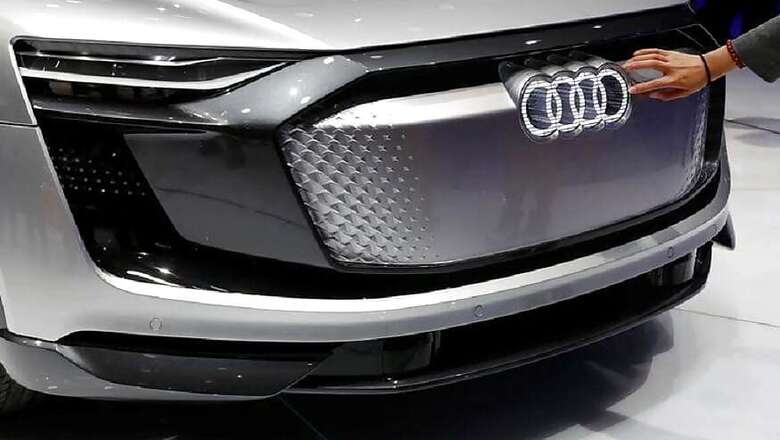
views
German luxury carmaker Audi AG has come under fire from consumers in China for an advert that compared buying a second-hand car to checking out a bride-to-be. Audi, which is attempting to revive its sales in the world's biggest car market, said on Wednesday it deeply regretted the advert and that it had been withdrawn. The video, which has gone viral since being aired online and in cinemas this week, showed a mother-in-law examining her son's bride as the young couple waited at the altar to be married, an attempted play on a common stereotype of fussy Chinese parents. Thousands of Chinese consumers went online to mock the advert, saying it was sexist and demeaning to women. On Tencent Holdings' popular chat app WeChat nearly half a million people mentioned "Audi second-hand car" on Tuesday.
Negative social media reaction in China can have an outsized effect on brands, with hundreds of millions of people using WeChat and rival platform Weibo. Audi, owned by Volkswagen, has seen sales stall in China this year, despite a slight bounce back in June. In the 30-second advert, a serene outdoor wedding is interrupted when the groom's mother rushes to the podium, checking out the bride's eyes, before pinching her nose and ears, and pulling open her mouth to check on teeth. You can watch the video below.
A voice over says: "Important decisions must be made carefully ... Only with an official certification can you relax." The advert is an approved retailer of Audi second-hand cars.
The video touched a nerve amongst Chinese consumers, with many online saying it objectified women.
"This is really low taste. Isn't this like what people do when trading cattle?" said one under the handle Yaoxiaozi on microblog Weibo.
Audi said in a statement the perception created by the advert "does not correspond to the values of our company in any way," adding it was launching an investigation to ensure the mistake didn't happen again.
Premium carmakers are increasingly looking to the Chinese market for growth, as growing personal wealth and the emergence of flourishing private enterprises drive up sales.


















Comments
0 comment